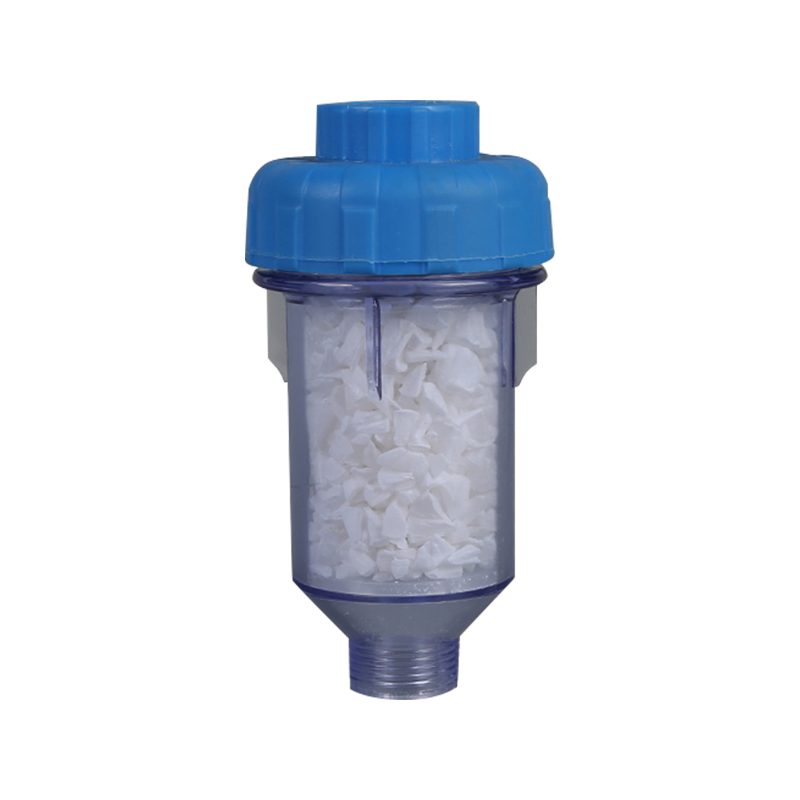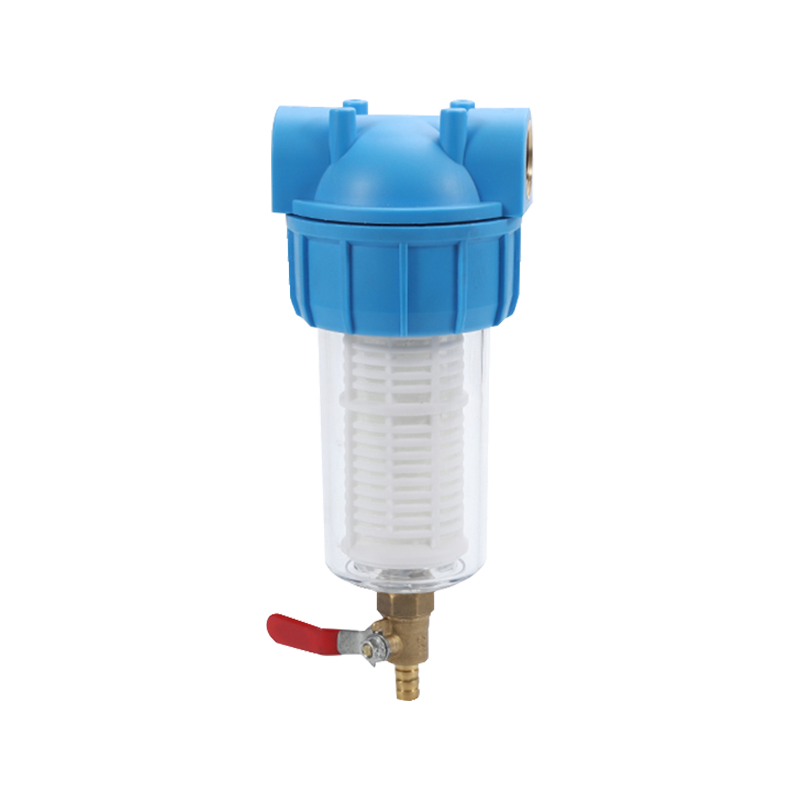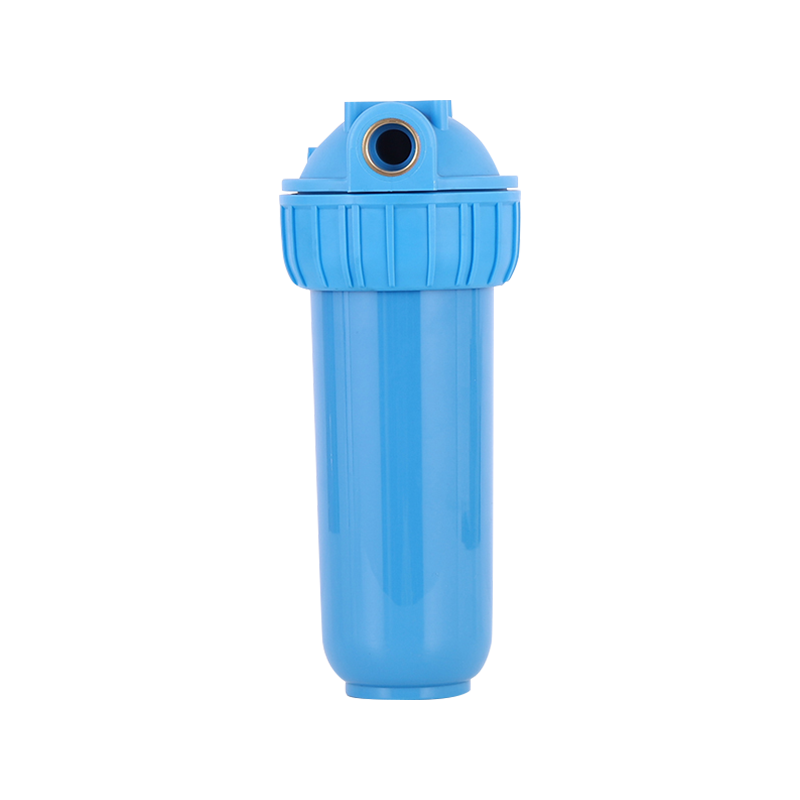The core highlight of this filter is its built-in silicone sheet filter layer. As a high-performance elastic material, silicone has high-temperature resistance, aging resistance, corrosion resistance,...
See Details [email protected]
[email protected] +86-18857088392
+86-18857088392 No. 1, Guihua 'an Road, Qinggang Xiaohu Family, Mushan Town, Yuyao , Zhejiang, CHINA
No. 1, Guihua 'an Road, Qinggang Xiaohu Family, Mushan Town, Yuyao , Zhejiang, CHINA
The Environmental Benefits and Health Benefits of Home Water Filter Cartridges
Industry News-The Environmental Benefits of Home Water Filter Cartridges
1. Reduction in Plastic Waste
Using home water filters significantly reduces the need for bottled water. Bottled water consumption contributes heavily to plastic pollution, with millions of bottles being discarded every day. By filtering tap water at home, you can directly decrease the demand for plastic water bottles.
- Plastic Bottle Production: Manufacturing plastic bottles uses significant amounts of raw materials like petroleum and natural gas.
- Transportation: Bottled water needs to be transported from production plants to distribution centers, consuming fuel and contributing to carbon emissions.
- Landfill Waste: The majority of plastic bottles are either not recycled or are disposed of in landfills, where they take hundreds of years to degrade.
By opting for a water filter, you’re helping to keep plastic out of landfills and the ocean.
2. Less Energy Consumption
Bottled water requires substantial energy throughout its production cycle. From extracting raw materials to packaging and transporting the bottles, energy is consumed at every stage. By using filtered tap water, you reduce the carbon footprint associated with bottled water.
- Production Energy Use: The energy used to produce bottled water, including plastic production and bottle filling, can be significantly reduced by using home water filters.
- Transportation Energy: Water that’s transported from distant locations (often across states or countries) involves high energy consumption, contributing to a large carbon footprint.
Filtering water at home minimizes these energy-consuming processes, making it a more eco-friendly choice.

3. Sustainable Water Consumption
Most bottled water companies rely on freshwater sources, which can often be unsustainable in drought-prone or resource-depleted regions. With a home water filter, you’re tapping into a renewable resource – your own tap water – and avoiding the depletion of natural water sources that bottled water companies often over-exploit.
- Tap Water vs. Bottled Water: Tap water comes from local municipal systems, which are typically more sustainable and have stricter regulations.
- Supporting Local Water Systems: Using home filters supports the local water system and reduces reliance on mass-produced bottled water.
By filtering and consuming local tap water, you’re promoting sustainability in water consumption.
4. Decreased Carbon Footprint
The transportation of bottled water contributes heavily to global greenhouse gas emissions. As bottled water is often produced in one location and shipped worldwide, the carbon emissions from this transportation can be staggering.
- Transportation Emissions: Each bottle of water that is shipped involves a large amount of fuel usage, which directly increases the carbon footprint.
- Local Water Use: Filtering water at home eliminates the need for long-distance water shipping, significantly reducing carbon emissions.
Using a home water filter can help you drastically lower your individual carbon footprint.
5. Waste Reduction
Many water filter cartridges are reusable or recyclable. Unlike disposable plastic bottles, which end up in landfills, some filters can be recycled after use or replaced with minimal waste.
- Reusable Filters: Some filtration systems, such as activated carbon or reverse osmosis filters, can be reused with periodic cleaning.
- Recyclable Cartridges: Even when you need to replace a filter, many brands provide recycling programs for used cartridges.
This significantly reduces your contribution to overall waste.
The Health Benefits of Home Water Filter Cartridges
1. Improved Water Quality
Water filters remove a wide variety of contaminants that can affect the taste, smell, and quality of your drinking water. Filters are designed to remove chlorine, lead, pesticides, bacteria, and other harmful substances that might be present in tap water.
- Chlorine: Chlorine is often added to public water systems to kill bacteria but can have a negative taste and odor, which is reduced by water filters.
- Heavy Metals: Heavy metals like lead and mercury can enter water supplies through old pipes. Filters effectively reduce these metals, which can be toxic over time.
By using a water filter, you can ensure that the water you drink is much purer and safer.
2. Reduced Risk of Contaminants
Contaminants like bacteria, parasites, and chemicals can be present in untreated tap water, especially in older pipes or areas with poor water infrastructure. Home water filters provide an added layer of protection, ensuring that harmful pathogens are removed from your drinking water.
- Bacteria and Viruses: Water filters can remove microorganisms like E. coli, which can lead to gastrointestinal illness.
- Toxins: Pesticides and industrial chemicals can leach into the water supply, but water filters can help eliminate these toxic substances.
Drinking filtered water can significantly reduce the risk of waterborne diseases and contaminants.
3. Enhanced Hydration
Filtered water often tastes better because it lacks the chemicals and odors typically found in tap water. People are more likely to stay hydrated when they enjoy the taste of the water they’re drinking. Hydration plays a vital role in maintaining proper bodily functions.
- Better Taste: Filtering out unpleasant odors and tastes encourages more frequent water consumption.
- Healthier Hydration: Proper hydration helps with digestion, metabolism, and energy levels throughout the day.
The better the taste of your water, the more likely you are to drink it, improving your overall health.
4. Better Skin Health
Chlorine and other chemicals present in unfiltered tap water can dry out your skin, leading to irritation, acne, or eczema. Filtering your water can reduce skin issues and provide softer, healthier skin.
- Chlorine Removal: Chlorine is often linked to skin dryness and irritation. Removing it from your water helps protect your skin.
- Chemical-Free Water: By avoiding exposure to chemical-treated water, your skin will be less prone to dehydration or rashes.
Filtered water is not only good for your internal health but can also help improve the appearance and health of your skin.
5. Prevention of Gastrointestinal Issues
Many gastrointestinal problems, such as diarrhea, nausea, or stomach cramps, can be caused by drinking contaminated water. A home water filter removes harmful pathogens, including bacteria and parasites, which can lead to these issues.
- Pathogen Removal: Filters can effectively remove harmful microorganisms, ensuring that your water is free from bacteria and viruses.
- Protection for Sensitive Stomachs: Safe, filtered water is especially beneficial for children or those with sensitive stomachs who are more prone to stomach-related issues.
By drinking filtered water, you lower the chances of these unpleasant gastrointestinal conditions.
6. Protection for Vulnerable Groups
Certain groups, such as children, pregnant women, and the elderly, are more vulnerable to waterborne contaminants. A home water filter ensures they consume clean, safe water, reducing the risk of exposure to harmful substances.
- Children: Kids are more susceptible to waterborne illnesses, so providing them with filtered water is essential for their health.
- Pregnant Women: Exposure to contaminants during pregnancy can have long-term effects on fetal development, making filtered water important for expectant mothers.
Filtered water is a small step toward protecting the most vulnerable members of your family.
7. Long-Term Health Savings
Although home water filters represent an initial investment, they can save you money in the long run by reducing the need for bottled water and potentially avoiding health problems caused by contaminated water.
- Reduced Medical Costs: Drinking clean, filtered water can prevent waterborne illnesses and reduce healthcare expenses.
- No Need for Bottled Water: By using a filter, you no longer need to purchase bottled water, saving money over time.
Investing in a water filter may seem costly upfront, but it provides long-term benefits both for your health and wallet.
Table: Comparison of Filter Types and Their Benefits
Here is a simple comparison of common home water filter types and their benefits:
| Filter Type | What It Removes | Ideal For |
|---|---|---|
| Activated Carbon Filter | Chlorine, pesticides, volatile organic compounds | Improving taste and odor |
| Reverse Osmosis (RO) | Heavy metals, salts, bacteria, viruses | Ensuring pure, safe drinking water |
| UV Filter | Bacteria, viruses, pathogens | Disinfection of water |
| Ceramic Filter | Bacteria, sediments, cysts | Low-cost filtration option |

 English
English русский
русский Español
Español عربى
عربى 中文简体
中文简体
 >
> >
> >
> >
> >
> >
> >
> >
>
